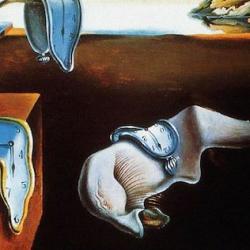Richard Sorabji observes (Time, Creation, and the Continuum) that there have been disputes among philosophers concerning the goodness of philosophical perplexity. Wittgenstein compared it to a fly trapped in a bottle, which suggests “it would have been better . . . never to have suffered perplexity at all” (149).
There is a counter-tradition, one that includes Augustine, perhaps Cicero, to the effect that “for man, as opposed to God, happiness consists in seeking the truth” (150). Gregory of Nyssa is Sorabji’s chief exponent of this view: “He viewed mystical experience of God, not as something static, but as a perpetual discovery. Since the distance between the soul and God is infinite, there will always be more to understand, and the more we understand, the more we recognise that God is incomprehensible. But we will never feel satiety, because we can always progress” (150).
He quotes Nyssa:
when the soul has partaken of as many beautiful things as it has room for, the Word draws it again afresh, as if it had not yet partaken in beautiful things, drawing it to share in the supreme beauty. Thus its desire is increased in proportion as it progresses towards that which is always shining forth, and because of the excess of good things which are all the time being discovered in that which is supreme, the soul seems to be touching the ascent for the first time. For this reason, the Word says again to the awakened soul ‘Arise,’ and to the soul that has come ‘come.’ For to him who really arises there will be no end of always arising. And for him who runs towards the Lord, the space for this divine race will never be used up. For we will always be aroused, and never cease from coming closer by running. (150-1)
Eternity itself is not a static timeless changelessness, but a perpetual race toward the infinite beauty that we will never comprehend or encompass.
Here we have a profoundly creationist, profoundly anti-Gnostic theology, in which time is not considered a painful limitation but affirmed as very, very good.














